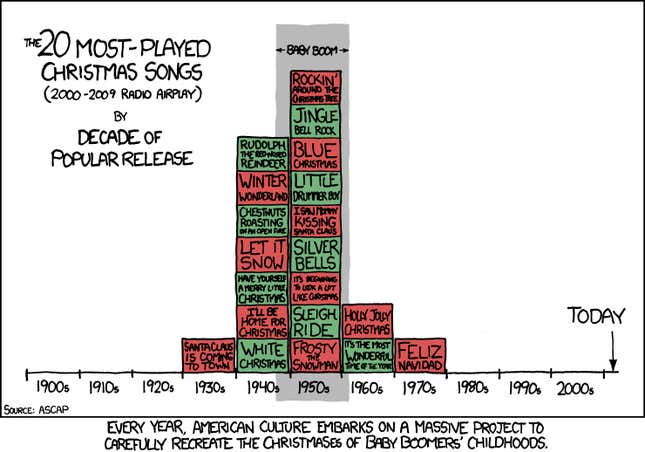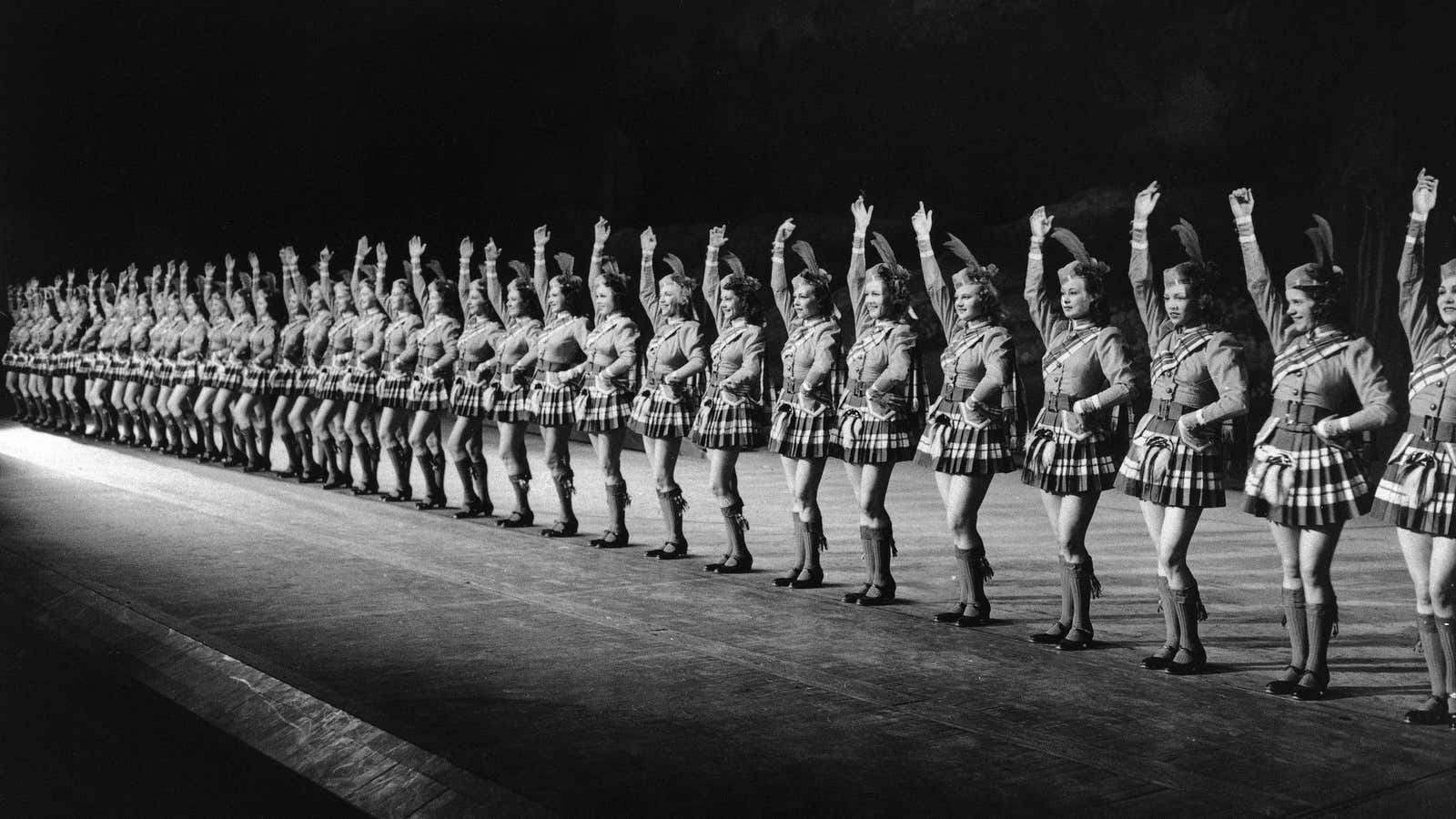I grew up watching American holiday traditions on television—from South Africa. Roaring fires, Thanksgiving dinners, falling snowflakes, and cozy family scenes flashed across my TV screen, while outside my (wide open) doors, the sun blazed and the sea roared.
Christmas in South Africa was a thoroughly outdoor affair. We’d set the table, often in my parents’ garden, and tuck into cold cuts, salad, and cool pies like milk tart. If us kids had been good, we would be handed a slice of watermelon, which we could munch on the grass before jumping in the pool. If we were down by the sea, which we often were during South African schools’ long summer break, Christmas lunch would be sandwiched between trips to the beach.
When I moved to Switzerland for a gap year after high school, and then to New York for graduate school, Thanksgiving and a winter Christmas were an exciting novelty. But that didn’t last long. Although I loved the Christmas markets (and being able to wear chunky knit hats), I also felt trapped by the traditions I encountered. In the US and Europe, holidays were “done” in a way that was both familiar to me, and deeply foreign.

As much as I’ve since been embraced by my American husband’s family during the holidays, I can still acutely feel that their traditions are not my own. And I’m not alone in feeling trapped by traditions. Where some find comfort in their repetitive, predictable nature, others experience them as stressful reminders that things at home might be less than perfect. Traditions can set up unreasonable expectations of what the holidays should “look like”—which, when stacked up against reality, can lead to a major letdown.
It doesn’t help that holiday traditions, particularly in America, are linked with intense consumerism. Retailers have used holidays to promote goods since the early 20th century, writes Peter Stearns in Consumerism in World History: The Global Transformation of Desire. Not even the Thanksgiving Day Parade is safe: Macy’s, he writes, introduced the parade in 1924 “to call attention to Christmas buying on a day not usually associated with commercialism.” All that commerce can make it particularly hard to uncouple holiday traditions from box-store deals and disposable Santa tchotchkes.
Here’s a solution. If traditions leave you, like me, feeling alienated or empty, it’s worth considering claiming them as your own.
“Not all traditions that you grew up with will continue to work for your family,” writes Karen Renshaw Joslin in Positive Parenting from A to Z. ”Set priorities and make a holiday plan based on what are the most workable, enjoyable, and meaningful traditions to keep for your family. Do not get sucked into believing you must do it all.”
Reclaiming holiday traditions might mean creating entirely new rituals, which some sociologists have found could relieve stress and actually benefit children (paywall). It might also mean embracing the tropes of a holiday wholeheartedly, but putting your own unique twist on them.
Quartzy editor Indrani Sen first celebrated Thanksgiving at 12, when she moved to the US from the UK two years after her mother’s death. The holiday felt magical, she says, because it was something her family had started ”entirely from scratch, and it didn’t have any sad connotations to it.” The feeling of thankfulness associated with the holiday resonated with her at the time, and still does. That’s why, for more than a decade, Indrani has hosted a Friendsgiving with her husband and two sons at her home in Brooklyn. It’s a tradition she doesn’t mind being “wholeheartedly cheesy about,” including by asking her friends to go around the table and say what they’re thankful for.
Thanksgiving isn’t the only tradition Sen has created from scratch. She also started a “Polar Bear Picnic” in February, which involves outdoor deep-frying, and celebrates her Jewish roots with a Passover Seder gathering that she kicked off as an adult.
“There’s [not] much of a downside to an opportunity to bring people together around a meal and to talk,” Sen says. “Especially as you get older, with kids, your life can become so narrowly defined by the activities you’re doing, your work and hobbies. It just seems like there is less and less opportunity to bring people from different spheres together.”
More and more people are choosing to celebrate this way. Nielsen reported last year that Americans, particularly millennials, are eschewing one big Thanksgiving meal in favor of several, eating on average “2.7 meals with family and 1.8 meals with friends.” And mixing traditions is only going to become more common as the world becomes more globalized.
Whether you choose to create your own holiday traditions or are pulled into new ones by circumstance, embrace the creativity. As D.H. Lawrence wrote to his sister Ada in 1911 (about religion, but it can just as easily be applied to holiday traditions): “It is a fine thing to establish one’s own religion in one’s heart, not to be dependent on tradition and second-hand ideals. Life will seem to you, later, not a lesser, but a greater thing.”
Personally, I’ve started small—I haven’t quite trucked in the beach sand and light therapy lamp yet. But I’m planning some outdoor sightseeing with family over Thanksgiving, and will make sure we have South African chocolate, and possibly even some milk tart, in the house at Christmas.
